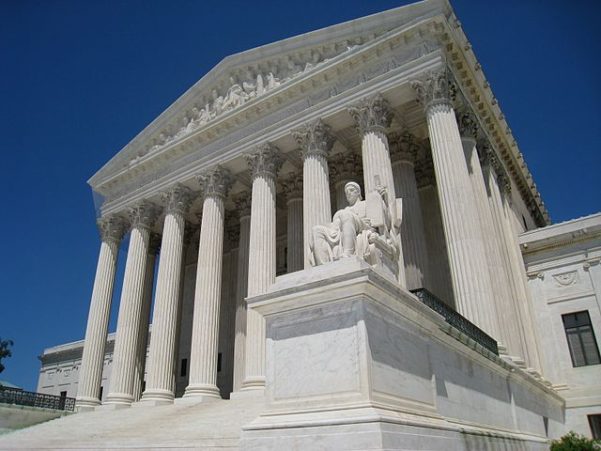
Does a religious school have the right to employ only staff who will uphold the school’s ethos? Should a religious employer be forced to pay for contraception and the ‘morning-after pill’? In two separate rulings last week considering these matters, the US Supreme Court has ruled in favour of religious freedom.
The first case concerned two employees who were dismissed from Catholic elementary (primary) schools. One claimed to have been let go because she had a disability and the other because of her age. They appealed to anti-discrimination legislation but the school claimed that employees who have a ministerial role are excluded from such protection. A doctrine known as the “ministerial exception,” bars ministers from suing churches and other religious institutions for employment discrimination.
The question for the Supreme Court was to determine who qualifies as a minister, i.e. who has a ministerial role.
In a 7-2 decision the judges clarified that although the teacher were not ordained ministers, the “ministerial exemption” applies to all teachers in a school, not simply to those who are ordained or those who teach religious subjects. Schools are “communities of mutual witness” and ultimately, it is the Church rather than the state that has the last word on who can teach.
Judge Alito observed that the First Amendment bars the government from interfering in the right of religious institutions to decide issues relating to their faith and doctrine. Consequently, religious institutions are autonomous and independent from the state and make their own decisions about how they are run, including the selection of teachers. He wrote that there must be “a recognition that educating young people in their faith, inculcating its teachings, and training them to live their faith are responsibilities that lie at the very core of the mission of a private religious school.”
The second ruling addressed more a procedural than a substantive point, but it is still a significant victory for religious freedom.
The Affordable Care Act, also known as ‘Obamacare’, had an exemption for certain religious institutions that did not want to offer their employees insurance coverage for what they consider against their religious ethos. For instance, churches are not obliged to offer an insurance plan that includes contraception or the morning-after-pill, which may cause abortion.
The Trump Administration expanded this exemption, including not only religious but also moral reasons. The States of Pennsylvania and New Jersey challenged the administration’s ability to overturn the Obamacare mandate in this regard and, consequently, the Supreme Court was asked if the Trump Administration followed the right procedures for permitting this new exemption.
The litigants claimed that the Trump administration did not have the right to apply religious freedom law to this exemption.
The Supreme Court (by 7-2), upheld the right of employers with a religious or moral objection to deny coverage as part of their workers’ health care plans.
Justice Thomas, who wrote the majority opinion, said that that the government "had the statutory authority to craft that exemption, as well as the contemporaneously issued moral exemption."
This is a big victory for freedom of conscience and of religion but the battle is not finished as two of the judges suggested a possible further challenge.
The Court left the door open for further litigation on other grounds. The Administrative Procedure Act (APA) instructs court to invalidate any state agency action that is found to be “arbitrary and capricious”. In other words, the exemptions to the Obamacare have to be reasonable.
The Court did not address this specific point but two of the Supreme Judges in their opinions suggested a possible challenge in this direction. Litigants could claim that those exemptions were not reasonable and there is no guarantee that they will be fully upheld in the future. These issues remain open for the lower courts to address. The fight for religious freedom never ends.
Nessun commento:
Posta un commento